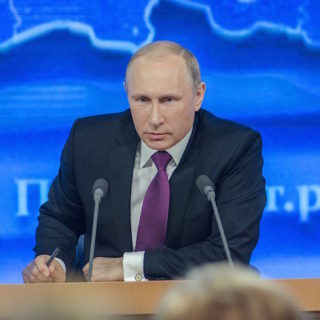‘Life Is Such a Simple, Yet Cruel Thing’ By Vladimir Putin – Family Memories of WW2 by Russian President Vladimir Putin for Russia-Insider
GNN Note – Corporate media tells us we are to hate and despise the Russians as our enemy. I’m not sure why other than to keep us in fear of a threat that simply does not exist. China is far bigger threat to our way of life, not because of bombs or invasion, but through economic means. Russia is not threatening the U.S. economically, not yet anyway, but in the past we have been told we are to fear them and must spends billions upon billions of our tax dollars to keep them at bay. From what I can tell most of this is a lie. I agree 100% with President Trump that better relations with Russia is good the U.S. and, indeed, good for the world.
The article below is intended to help bridge the gap, give us an insightful look at the President, who, by the way, enjoys a really high favorable poll among the people. I don’t love Russia, I am not pro Russia; I am an American and I love my country. As a Christian we are to seek understanding and I’ve heard it said before that it is better to understand than to be understood.
******
Frankly, my father did not even like to touch on the subject of the war. It was more like I was simply nearby when the adults were discussing or recalling things among themselves. All my knowledge about the war – about what happened to my family – arose out of those overheard conversations between adults. Still, there were times when they spoke to me directly.

My father was a sailor. He was called up in 1939 and served in a submarine squadron in Sevastopol. On his return, he worked in a factory in Peterhof where he lived with my mother. I think they even built some kind of little house there.
When war broke out he was working in a military company, which entitled him to an exemption from conscription. However, he applied first to join the party and then again to be sent to the front. He was dispatched to a NKVD sabotage squad. It was a small contingent of 28 people who were sent into the nearby rear to carry out acts of sabotage – blowing up bridges, railway tracks, etc. Almost immediately they ran into an ambush – someone betrayed them. They entered a certain village, then left it, and when they returned some time later the Nazis were already waiting for them. They were chased through the woods. My father survived by hiding in a swamp where he spent hours under water breathing through a reed. I remember this from his story. He said that while he was in the swamp breathing through the reed, he could hear the German soldiers passing by, just a few steps away from him, and how the dogs were yapping…
On top of that, it was already presumably early autumn, which is to say it was already cold. I also remember well how he told me that the head of their group was a German. A Soviet citizen, but German nonetheless.
Interestingly, a couple of years ago I was handed a dossier on this group from the archives of the Defense Ministry. I still have it at my home in Novo-Ogaryovo. There is a list of the group – surnames, first names, patronymics and brief descriptions. It was indeed 28 people and their leader was a German, exactly as my father had said.
Of the 28 people, only 4 crossed the front line back to our side. The other 24 were killed.
They were then reassigned into the active army and sent to the Nevsky Pyatachok. It was probably the most violent spot during the whole of the Leningrad Blockade. Our troops held a small bridgehead four kilometres in width and some two kilometres in depth. It was supposed to be a springboard for the future breaking of the blockade, but it never got used for this purpose. They broke through the blockade elsewhere. Still, the spot (Nevsky Pyatachok) was held for a long time and there was exceptionally heavy fighting there. There are commanding heights above and all around and it was shot at throughout. Of course the Germans were also aware that it was the most likely place for a breakthrough and tried simply to erase the Nevsky Pyatachok from the face of the earth. There is data about how much metal there is in each square meter of this land. To this day it’s solid metal.
My father told me how he was wounded there. The wound was severe and he lived the rest of his life with shrapnel in his leg as not all the fragments could be removed. His leg always ached and he could never straighten his foot properly afterwards. They chose not to touch the small fragments to avoid shattering the bone. And thank God, they kept his leg when they could have amputated – he had a good doctor. He was assigned group II disability. As a disabled veteran, he was eventually given an apartment. It was our first separate apartment – a small two-room place. (Note: Before that the Putins lived in a communal apartment, where several families share the facilities, corridor and kitchen, and sleep in separate rooms.) Before we were given the apartment, we lived in the city centre and now we had to move, not quite to the outskirts, but to a newly-built area. That did not happen immediately after the war, but when I was already working at the KGB. I was not given an apartment then, but my father finally got his, and it was cause for great happiness. His account of how he was wounded was as follows:




